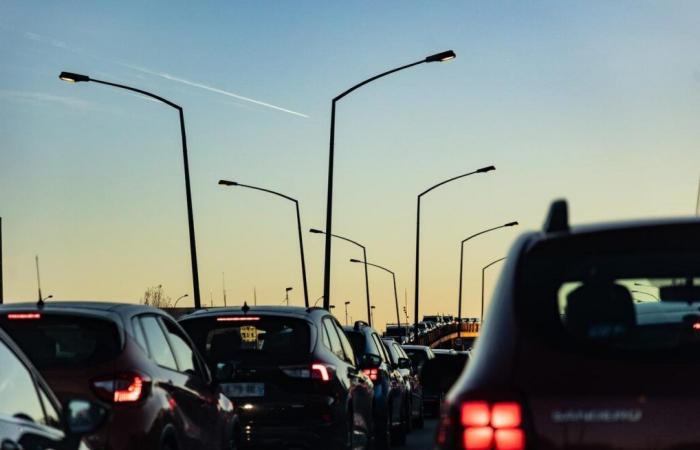
1 – A first assessment worse than in 2023
Published on December 24 by Citepa, the organization responsible for measuring national greenhouse gas (GHG) emissions, the provisional inventory for the first three quarters of 2024 shows a less convincing performance than last year. While French emissions fell by 5.8% in 2023, the drop is limited to 2.4% over the January/September period (compared to the same time interval in 2023). This figure could improve when the effect of carbon sinks – soils and forests absorb atmospheric CO2 – is included.
Citepa notes a clear slowdown, or even an inversion of the curve: -5% in the first quarter, -2.2% in the second and +0.5% in the third. Over the July/September period, it is emissions from the road sector (+1.1%) and especially from buildings (+11.8%) which weigh down overall. “This increase is due to the increase in emissions associated with the heating of residential and tertiary buildings in September 2024,” the experts estimate.
2 – Consumption of carbon energy decreases little
To outline the reasons for this trend, it is appropriate to look at the evolution of carbon energy consumption (oil products, gas, coal), which is correlated with GHG emissions. Beyond the first three quarters stricto sensu, its decline is significantly less pronounced than in 2023.
According to the dashboard of GRTgaz, the company which ensures gas transport over the majority of the national territory, gas consumption had fallen by 9.7% between 1is August and December 8, 2023 compared to the same period of 2022. Between December 1is August and December 8, 2024, it only fell by 3.8% compared to the same period of 2023.
We find the same reduction in road fuels. Last July, their consumption increased by 8% compared to July 2023 according to the professional union Ufip Énergies & Mobilités. Cumulatively over twelve months (December 2023 – November 2024), road fuel deliveries are down very slightly, by 0.9%, compared to the previous twelve months.
3 – Inflation dissipates, so does sobriety
These variations in consumption are part of a context of stabilization and/or decline in carbon energy prices, after their inflationary surge following the Russian invasion of Ukraine, at the beginning of 2022. For example, diesel lost on average around twenty cents per liter compared to last year on the same dates. After falling significantly in the first half of the year, the average gas price is now in the range it was at the start of the year. Not enough to encourage sobriety as massively as before.
The disappearance of what economists call the “price signal” is accompanied by a return to discretion in the discourse on energy savings. The government had trumpets sounded and drums sounded on its “sobriety plan”, with act 1 in October 2022 and act 2 in June 2023. The music is less loud today.





